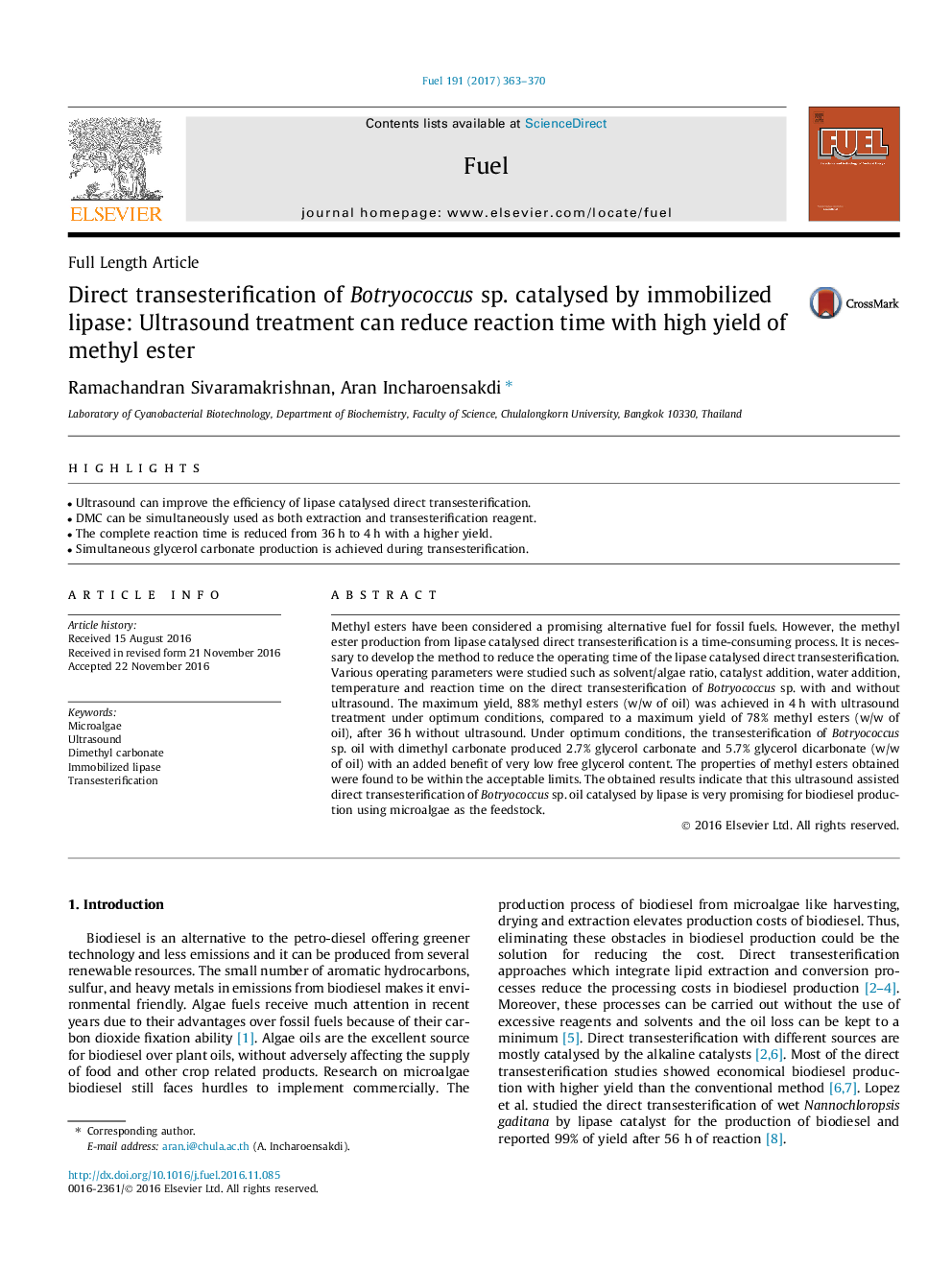| Article ID | Journal | Published Year | Pages | File Type |
|---|---|---|---|---|
| 4768780 | Fuel | 2017 | 8 Pages |
Abstract
Methyl esters have been considered a promising alternative fuel for fossil fuels. However, the methyl ester production from lipase catalysed direct transesterification is a time-consuming process. It is necessary to develop the method to reduce the operating time of the lipase catalysed direct transesterification. Various operating parameters were studied such as solvent/algae ratio, catalyst addition, water addition, temperature and reaction time on the direct transesterification of Botryococcus sp. with and without ultrasound. The maximum yield, 88% methyl esters (w/w of oil) was achieved in 4Â h with ultrasound treatment under optimum conditions, compared to a maximum yield of 78% methyl esters (w/w of oil), after 36Â h without ultrasound. Under optimum conditions, the transesterification of Botryococcus sp. oil with dimethyl carbonate produced 2.7% glycerol carbonate and 5.7% glycerol dicarbonate (w/w of oil) with an added benefit of very low free glycerol content. The properties of methyl esters obtained were found to be within the acceptable limits. The obtained results indicate that this ultrasound assisted direct transesterification of Botryococcus sp. oil catalysed by lipase is very promising for biodiesel production using microalgae as the feedstock.
Related Topics
Physical Sciences and Engineering
Chemical Engineering
Chemical Engineering (General)
Authors
Ramachandran Sivaramakrishnan, Aran Incharoensakdi,
